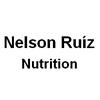Enzymes and their impact on amino acid digestibility
Published: June 21, 2023
Related topics:
Authors:
dsm-firmenich
Influencers who recommended :
Joshua Jendza, Mehran Mehri and 2 moreRecommend
Comment
Share
7 de julio de 2023
Hello Dr. Cowieson,
Hope you are doing well.
I wondered whether you have any thoughts/insights on the effects of exogenous proteases (specific or generally) on proteinaceous, immunogenic, components of the microbiota or microbiome and whether exogenous protease use been associated with (e.g. downregulation of) immune markers in different gastrointestinal tissues?
The performance response to doses of exogenous protease(s) generally appears to track its dietary substrate availability and/or there could be scope for a microbiome-mediated element?
Many thanks
Recommend
Reply

27 de junio de 2023
Thank you for the thoughtful and useful considerations, Dr. Cowieson. All the best.
Recommend
Reply

25 de junio de 2023
Aaron Cowieson
Thanks for your explanation. How if we have a combination of trypsin-like and chrmotrypsin-like proteases?
Recommend
Reply

22 de junio de 2023
Hello Dr. Cowieson,
Do you mind commenting on the following assertion in a different Engormix forum?
"Trypsin and chymotrypsin inhibitors will also inhibit the activity of trypsin-like proteases, such as serine proteases, see Morita (1996) Journal of Biochemistry, 119(4), 711–718. In that respect, you will probably fare better with aspartic proteases, which are resistant to trypsin (Kunitz) and trypsin and chymotrypsin (Bowman-Birk) inhibitors" Thank you.
Recommend
Reply
28 de abril de 2024
Dear Aaron
Are the commercial próteases able to hydrolyse glycinin and beta conglycinin ?
Thank you for answering
Are the commercial próteases able to hydrolyse glycinin and beta conglycinin ?
Thank you for answering
Recommend
Reply
Recommend
Reply
3 de agosto de 2023
Hello, Aaron Cowieson hope you will be fine. I have some confusion regarding protease enzymes. Can you please elaborate the specific mode of action of exogenous protease enzyme? How this enzyme unbound the amino acids from the feedstuffs?
Recommend
Reply
Recommend
Reply
11 de julio de 2023
Hello, Aaron Cowieson hope you will be fine.
Have you any idea about the effect of exogenous protease enzyme on the endogenous secretion of protease enzyme? Exogenous protease enzyme increase or decrease the secretion of endogenous protease enzymes?
Recommend
Reply
Recommend
Reply

Would you like to discuss another topic? Create a new post to engage with experts in the community.


























